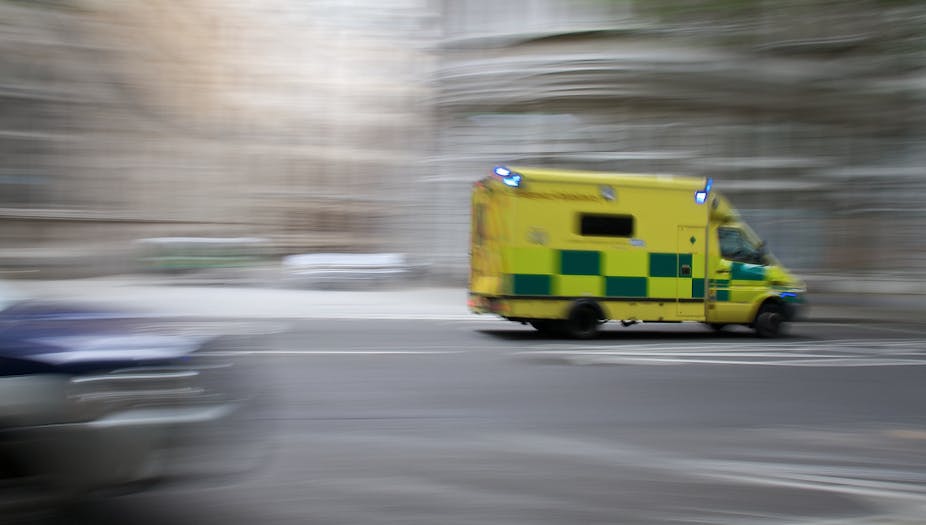Britain’s National Health Service is a key battleground for the general election campaign. But politicians must beware tinkering with their thinking on health, whether in the pursuit of votes or for ideological reasons.
In 2014, The Commonwealth Fund, a New York and Washington DC-based think tank, published a report on the state of the American healthcare system. Based (largely) on 2011 data, the report found the UK’s NHS is the best healthcare system in the industrialised world, beating even the Swiss system into second place. The US health system was the worst of the 11 nations considered – which also included Australia, Canada, France, Germany, the Netherlands, New Zealand, Norway and Sweden.
In 2012, British health spending per head of population was the equivalent of $3,647 while the US spent $8,895 per person. (At December 2012 exchange rates that amounts to £2,289 and £5,582 per person). That makes the US system nearly two-and-a-half times as expensive as the UK system. On top of that the US has worse health outcomes than the UK: life expectancy at birth is three years less in the US than the UK, for example, and the maternal mortality rate in the USA is three-and-a-half times the rate in the UK.
However, the benefits of the NHS don’t stop at the level of economic efficiency. The NHS, largely free at the point of use, is more democratic than a market-based system.
The democratic NHS ethos
In a market economy the worth of an individual is often based on their wealth or financial resources. However, it is reasonable to hold to the point of view that, to each person, a dignified and healthy life is of equal value in and of itself. At the heart of the NHS ethos is the understanding that provision of life-saving or life-enhancing treatment is based on need, rather than financial clout. In this sense the NHS is a more socially just institution than a private sector model.

There is, however, a downside to the NHS. Simple economic logic implies consumers have no upper limit of demand for what is provided without cost at point of use. However, the solution to the insatiable nature of demand for health services is not to make people pay – or at least, not unless inequality is somehow eliminated (good luck with that) and we all have the means to pay – but rather to be bold enough to determine and stick to the provision of socially efficient healthcare for all.
The task of determining what is and is not socially efficient is taken on by the National Institute of Health and Clinical Excellence (NICE). Sometimes the decisions reached by NICE might appear callous where they concern our own health and that of our relatives – however the other alternative is to break the system though insatiable demands.
But isn’t choice good?
It has sometimes been argued by free-market economists that competition and choice in healthcare will drive down costs and increase efficiency. It is an idea that has also appealed to the odd British politician. However, if Jo or Sam Average were asked whether they would rather pay £2,289 per person per year through their tax for the industrialised world’s best health service, or £5,582 per person per year out of their after-tax income for a less efficient market system, one might speculate that they would choose the efficient and cheaper healthcare package.

This is indeed the observed determination of the British people. Certainly, where people have observed both the US and British system in action, there is evidence of preference for the UK system. (This also illustrates the point that tax cuts are not everything when it comes to running an efficient nation – we need to consider what we are getting for our taxes – and what we will lose if they are cut.)
Fortunately, if people prefer choice, there is nothing to prevent Jo or Sam Average, having paid for a national health service with their taxes, purchasing medical insurance and becoming private patients. And here is an intriguing wrinkle to the debate which isn’t talked about much; this is still cheaper than having to rely solely on private provision. Because the NHS is so efficient, it keeps down the cost of private provision. A typical average family medical insurance cost in the UK was between £700 and £1650 in the UK, the equivalent in the US (in 2014) was $23,215 (about £14,000).
No meddling
This is not to say there should be no role for the private sector in healthcare provision: There will be some treatments that NICE considers should not be provided at their current price, for example. Similarly, the NHS might choose to subcontract out the provision of some of its services to private sector providers and still provide free treatment at point of use. However, there is some evidence that outsourcing has failed to improve services – rather the opposite.
It follows that we should be very careful with our world-class NHS. If ever a secretary of state for health wanted to tinker (but why would they?) they might perhaps look to the second-best system (the Swiss) for good practice (for example, in the localism of services), but certainly no further afield than that. “If it ain’t broke, don’t fix it”. The quality of all our lives depends on this simple, obvious – and economically sensible – maxim.

